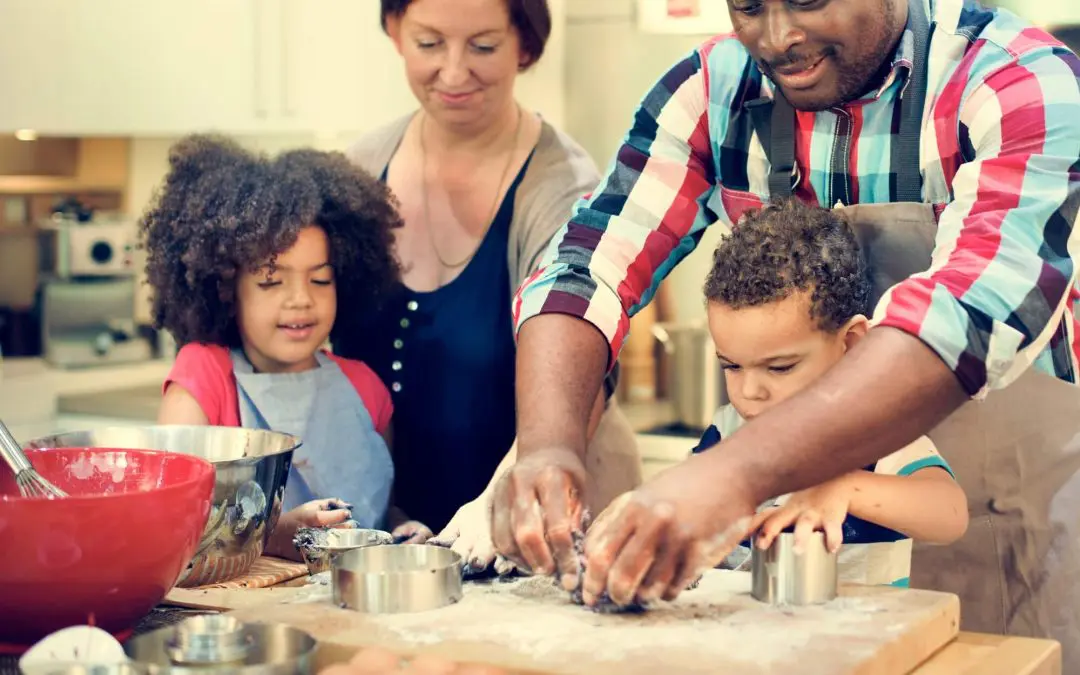The kitchen is often considered the heart of the home, where meals are prepared and families gather. However, it can also be one of the most hazardous areas in a house if safety measures are not properly followed. Understanding the basics of kitchen safety can help prevent accidents and create a secure environment for everyone. Here are some essential tips to keep your kitchen safe.
Kitchen Safety 101: Keep It Clean and Organized
A clean and organized kitchen is the foundation of safety. Make it a habit to wipe down countertops and appliances to prevent the buildup of grease and food particles, which is a fire hazard. Store knives and other sharp objects in a designated drawer or knife block to avoid accidental cuts. Keep frequently used items within easy reach to prevent unnecessary stretching or climbing, which can lead to falls or other injuries.
Proper Food Handling and Storage
Proper food handling and storage are crucial to preventing foodborne illnesses. Always wash your hands thoroughly before and after handling food. Use separate cutting boards for raw meats and vegetables to avoid cross-contamination. Store perishable items in the refrigerator or freezer promptly, and ensure that your refrigerator is set to the appropriate temperature to keep food fresh.
Fire Prevention and Kitchen Safety
Fires are among the most common kitchen hazards. Never leave cooking unattended, especially when using high heat. Keep flammable items like paper towels, dishcloths, and wooden utensils away from the stove. Ensure that your smoke detectors are working correctly and that a fire extinguisher is readily accessible in the kitchen. In case of a grease fire, do not use water to extinguish it. Instead, cover the pan with a lid to smother the flames or use baking soda.
Safe Use of Appliances
Kitchen appliances can pose significant risks if not used correctly. Always read the manufacturer’s instructions and follow them carefully. Unplug small appliances when not in use to prevent electrical fires. Ensure that cords are not frayed or damaged, and keep them away from water sources. When using the microwave, only use microwave-safe containers to avoid chemical leaching or fires.
Handling Hot Items
Burns are a common kitchen injury, but they can be easily avoided with proper precautions. Use oven mitts or pot holders when handling hot pots, pans, or baking sheets. Turn pot handles inward on the stove to prevent accidental tipping. Allow hot food and beverages to cool before tasting or serving to avoid scalding.
Knife Safety
Knives are essential kitchen tools but can be dangerous if not handled properly. Always cut away from your body and use a stable cutting surface. Keep your knives sharp; dull knives require more force and are more likely to slip, causing injuries. Store knives securely and out of reach of children.
Children and Kitchen Safety
If you have children, it’s crucial to implement additional safety measures. Install safety gates to keep young children out of the kitchen while you’re cooking. Use stove knob covers and keep dangerous items like knives and cleaning supplies out of reach. Teach older children the basics of kitchen safety, such as not touching hot surfaces and the proper way to handle knives.
Emergency Preparedness
Being prepared for emergencies can significantly reduce the severity of accidents. Keep a first aid kit in or near the kitchen and know how to use it. Familiarize yourself with basic first aid procedures, such as treating burns and cuts. Have emergency contact numbers readily available, including poison control and your local emergency services.
Following these kitchen safety basics can create a safer environment for yourself and your loved ones. A little caution and preparation can go a long way in preventing accidents and ensuring that your kitchen remains a joyful and secure place for cooking and gathering. Remember, safety in the kitchen is everyone’s responsibility.
Kitchen Safety FAQs
What should I do if I accidentally cut myself while cooking?
If you cut yourself while cooking, immediately rinse the wound with clean water to remove debris. Apply gentle pressure with a clean cloth or bandage to stop the bleeding. Once the bleeding has stopped, clean the area with antiseptic and cover it with a sterile bandage. If the cut is deep or the bleeding does not stop, seek medical attention promptly.
Are there specific precautions for using a gas stove?
Yes, using a gas stove requires specific precautions. Ensure proper ventilation in the kitchen by using an exhaust fan or opening a window. Regularly check the stove and gas lines for leaks. If you smell gas, turn off the stove immediately, open windows, and leave the house before contacting your gas company or emergency services.
How can I safely defrost frozen food?
The safest methods to defrost frozen food include using the refrigerator, cold water, or the microwave. Place frozen food in the fridge overnight to thaw slowly. For quicker thawing, submerge the food in cold water, changing the water every 30 minutes. Use the microwave’s defrost setting for immediate thawing, but cook the food immediately afterward to prevent bacterial growth.
How can I ensure my kitchen knives are safe to use?
Maintain your kitchen knives by keeping them sharp and clean. Use a knife sharpener regularly, wash knives by hand, and dry them immediately to prevent rust. Store knives in a knife block, magnetic strip, or drawer with blade guards to protect the edges and prevent accidental cuts.
Legacy Property Inspections offers professional home inspection services to customers in Southeast Georgia. Contact us to request an appointment.

